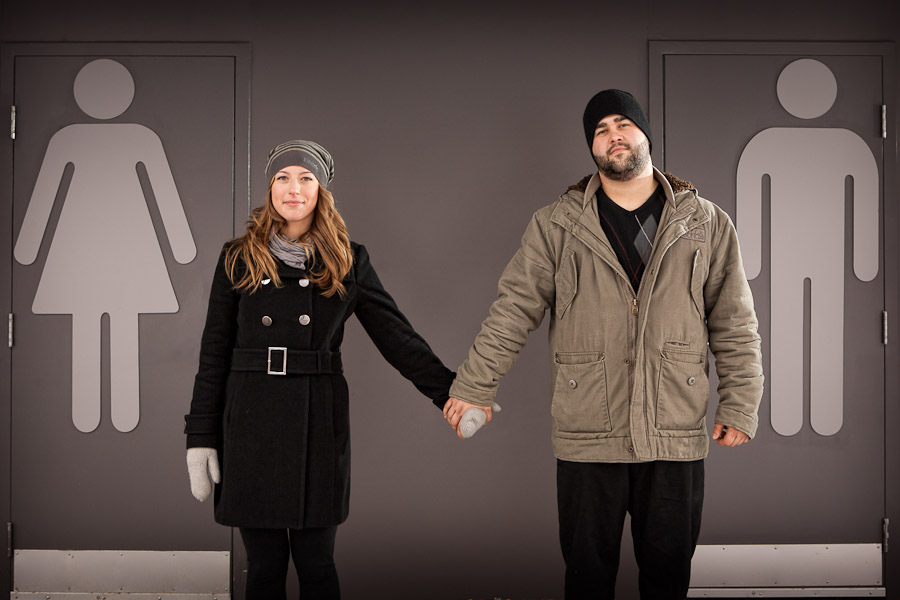
I’ve had a lot of people ask me “what softbox should I get?” It’s a loaded question, how should I know? And while the variety of softboxes out there will likely mirror the hundreds of potential uses for them, I do believe there is a solid group of entry-level softboxes available to anyone interested in working more with off-camera lighting.
First, some of you may not know what a softbox is, or why you would even want one (what does it dooooooo?). A softbox is a box-shaped light diffuser for your flash. I am assuming you have an off-camera flash, you will need at least one to put into a softbox. Once you do, the light is often reflected and diffused through some white and reflective material which creates a “softer” more flattering light for your subject. The rule with light like this is the larger the light source, and the closer it is to your subject, the softer the light will be. Soft light tends to have less of a transition from light to shadow, if it was a more abrupt transition, we tend to call that sort of lighting “hard.”
I’ve owned a few of the entry-level speed light softboxes for a while, and though there are many kinds for all the major studio light solutions I’m only going to discuss the ones that are made and used specifically with portable speedlights. Each is unique, and like I mentioned, has it’s place of when it’s best used; I do encourage you to look into what kind of light modifier is best for you before running out and buying everything I list.
Lumiquest
Lumiquest makes a huge range of small and adaptable light modifiers that attach to the end of your speed light by using Velcro. The one I own, and use is the Lumiquest SBIII. It’s about 8″ on each side and folds down flat. While not the smallest in the lumiquest lineup, it is the smallest I feel comfortable using in a professional capacity. Its use and portability is dead simple: get a lumiquest, or Honl strap for your speed light, unfold the SB3, and you’re ready to go!
There isn’t a lot of room inside the unit to allow for a particularly soft light, but it does increase the spread of your speed light tenfold and if you’re able to get it close enough to your subject it can provide some great results.
Lumiquest has also just released a larger version of this called the Softbox LTp, made perfectly to fit most 15″ laptop bags. This is brilliant as I already carried my SB3 in my laptop compartment of my ThinkTank streetwalker HD, I plan on getting two of the new SB’s to keep in there all the time, I certainly won’t notice the weight and I don’t use that space for a laptop currently.
My only beef with the SB3 is that the plastic, though durable, didn’t last through some rough-handling during the winter season (placid made brittle by the cold) and theres an annoying permanent tear in mine that will likely render the whole unit unusable eventually. While $50 is cheap by camera gear standards, it’s not necessarily disposable income and I will be sure to take much better care of its big brother once they become available.
Lastolite
This is probably my favourite softobox, I try to incorporate it’s use in everything I do. The Lastolite ezybox hotshoe is durable, easy to setup and use, and creates a large, flatering soft light.
Lastolite has a large selection of flash modifiers available, though a large part of their product line is bit more marketed towards a “pro” audience, that doesn’t mean everyone can’t jump in on the quality product they produce.
Almost all Lastolite stuff that I know of comes in a round blue bag, the ezybox is folded in on itself within it and sort of “springs open” to create the frame for the softbox. There’s an inner and outter diffuser (so two sheets, one on the inside diffuses the light and spreads it so when it hits the outter diffuser the light is even softer). It does tend to eat up a bit more light than some other solutions, but that’s the price you pay for getting good quality light – and even at full pop, some of the higher end speedlights are more than sufficient.
Storing it in the bag is easy to do, and lastolite even makes replacement parts available for all of the different pieces it comes with. It’s not quite as thin as the Lumiquest (of course it is larger) SB, so it’s also a bit more difficult to store and carry with you. But the quality of the product is unbeatable and I bring it to almost every shoot.
I own the 24″ model, but they also make it in 15″ and a newly released 8.6″ “Speed-lite” which, if the pictures tell me how to use it, make you look like a huge dork (my recommendation, as always, would be to remove the flash from the camera).
(eBay special)
While I have seen, and know people who use, similar softboxes available on ebay I am a fan for rewarding good products and innovation. So if Lastolite made a softbox and someone stole the design and made their own, my money is still going to Lastolite. In the same way, I hope someone would like to pay for my photography, instead of stealing it.
Westcott
Westcott has a much lauded line of products, none of which (save for a small umbrella) I’ve actually purhcased or used. The softbox I’ve eyed the most is the Apollo, which looks to setup like an umbrella (so you push it open) and then the flash goes inside of it. This has the advantage of being light, and folding up next to your stands (long and thin).
Another advantage is that the way you mount the flash inside of the box, gives you the option of adding extra flashes – thus increasing the overall power, or allowing you to halve the power of your lights and increase their recycle time. I’ve heard that by bouncing the light within the softbox, you also gain an extra half stop (or so) of light vs. the ezybox (which has to diffuse the light twice).
My hesitation on buying the unit myself (it is cheaper at retail than the lastolite ezybox) is that I don’t actually know any PEOPLE who use it. I did have one anonymous tweeter tell me that they had tried it and found it poorly made and difficult to use… so you’ll have to form your own opinion on this (or if Westcott wanted to SEND me a unit I’d be more than happy to give it a fair trial & review).
Of course none of this means anything if you don’t know how to use your speedlights, or have a clue how to get them off your camera to create the direction, and placement, of light that you want. Which will be my next post: GTFing Flash off the Camera.
If you have your own experience with these, or any other speedlight compatible softboxes, or links to some DIY options, please share them in the comments!




